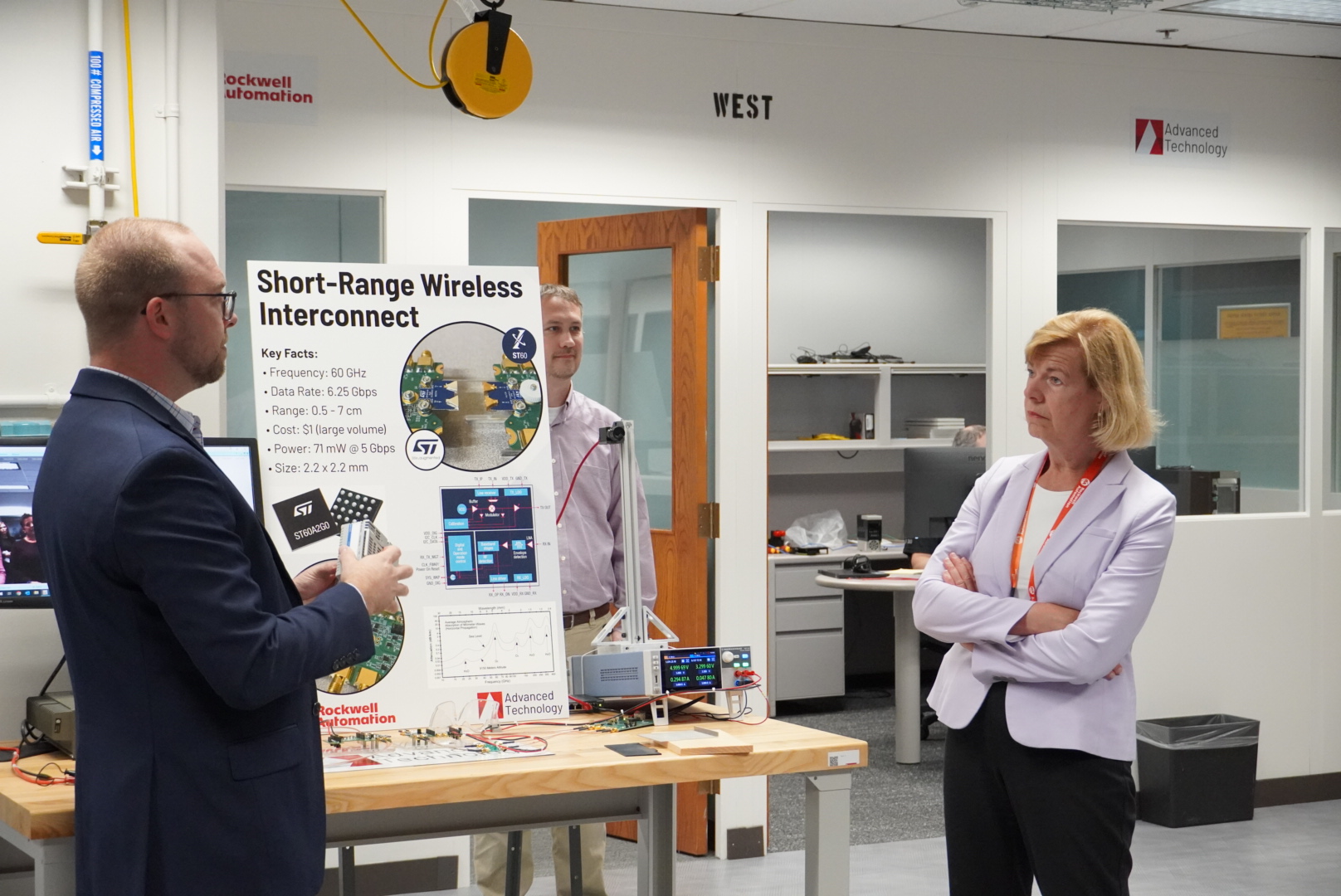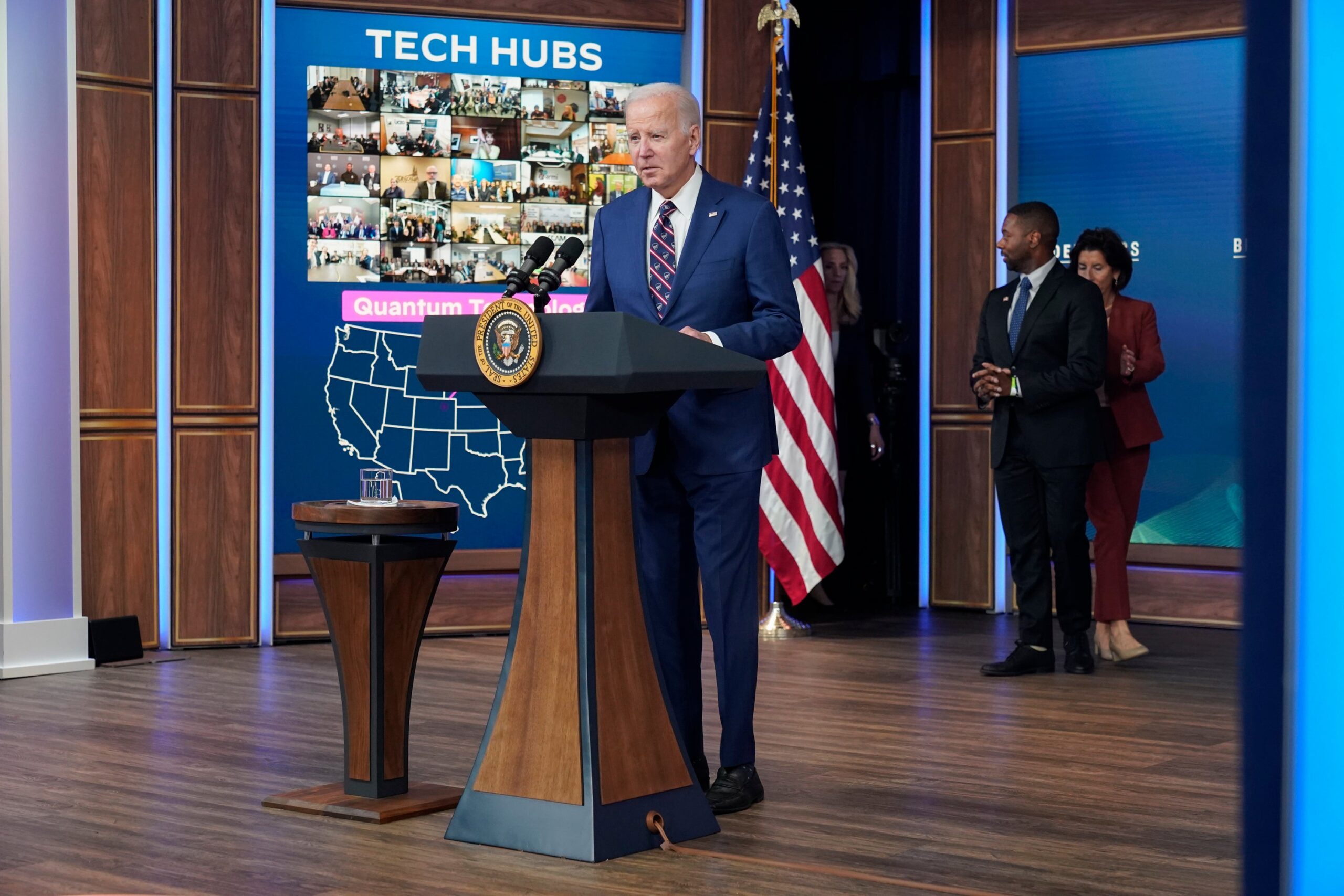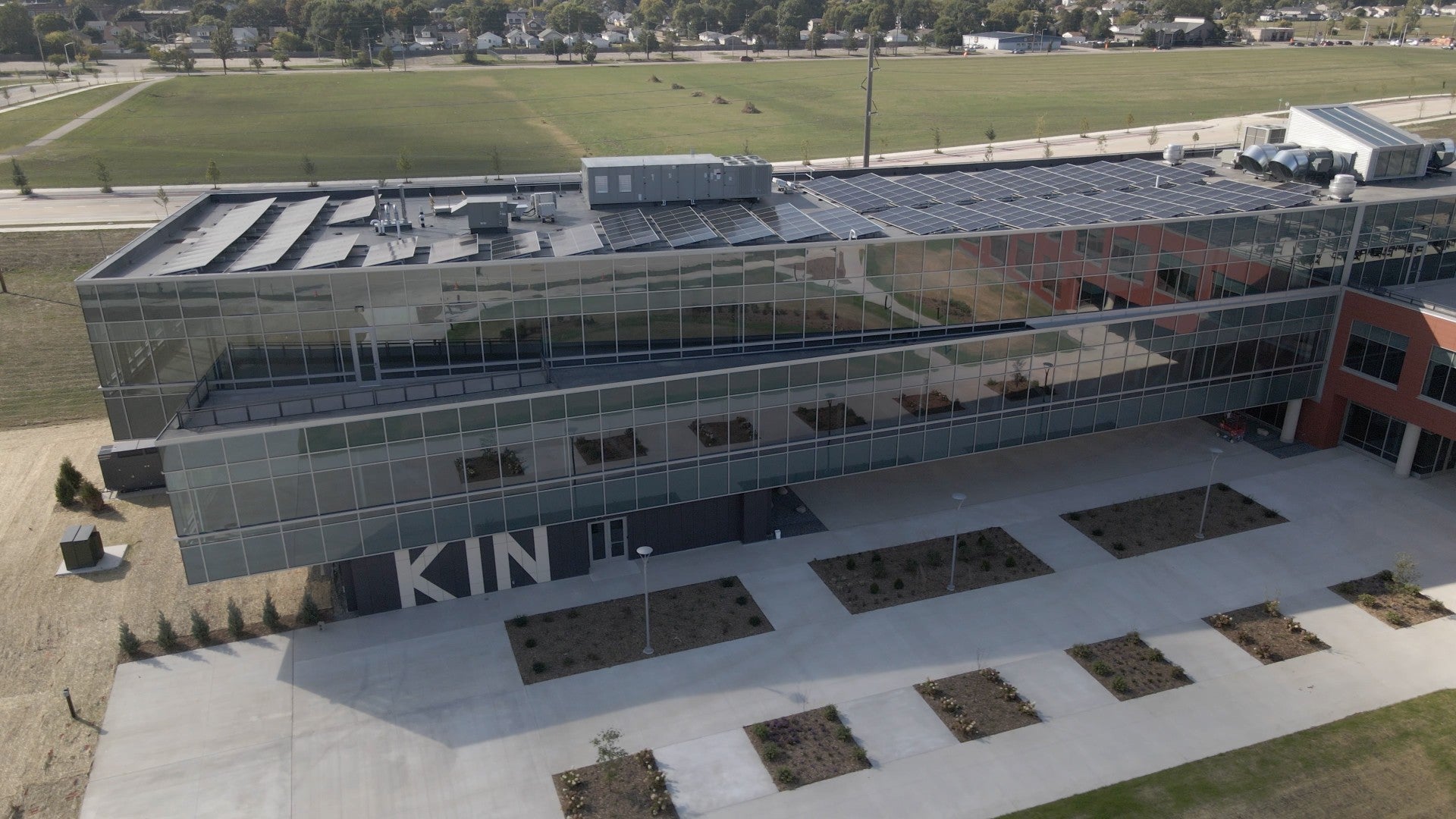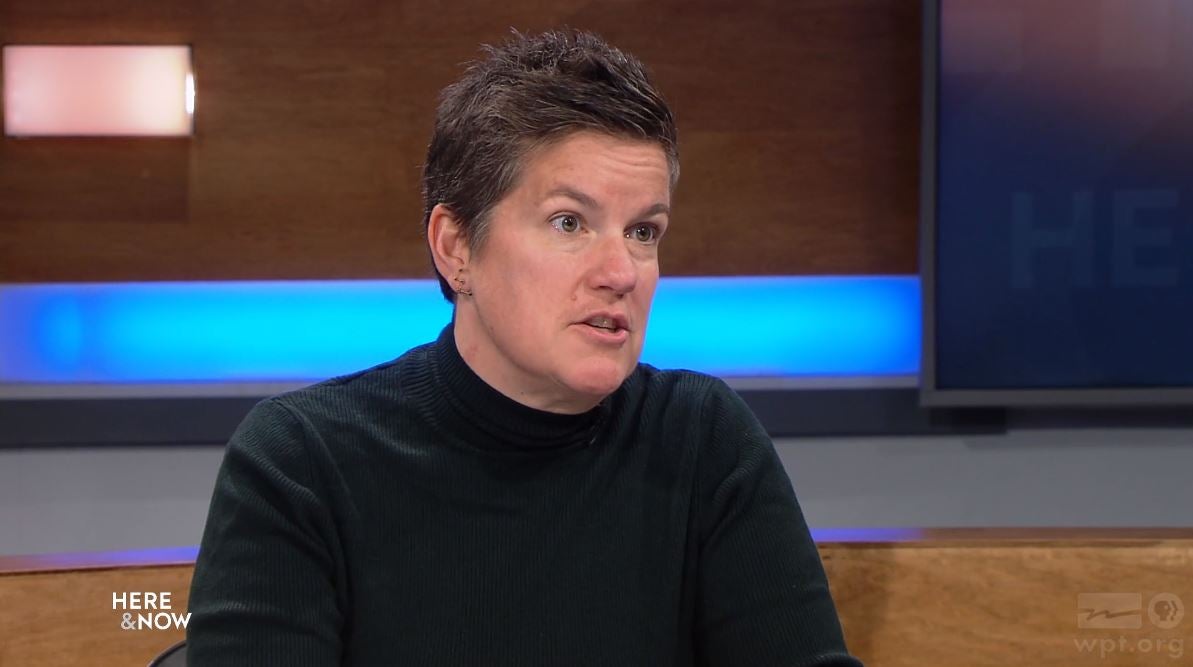Wisconsin will receive a regional tech hub designation from the federal government focused on the state’s growing biohealth sector, with President Joe Biden saying he thinks work being done in the state will save lives.
The Wisconsin Biohealth Tech Hub aims to make the state a “global leader” in personalized medicine, a health care approach that uses a patient’s genetic sequence, medical record and environment to diagnose and treat them more efficiently, according to the U.S. Economic Development Administration.
The agency said the designation will allow Wisconsin to use its “track record of commercializing medical research” to improve manufacturing coordination and data sharing, as well as expand lab space and computing capacity.
News with a little more humanity
WPR’s “Wisconsin Today” newsletter keeps you connected to the state you love without feeling overwhelmed. No paywall. No agenda. No corporate filter.
The Biden administration made the announcement Monday. At a press conference, the president said the 31 tech hubs across the country will be able to compete for up to $75 million in federal funding to accelerate and enhance their work.
He called the work being done by the tech hubs “transformational,” specifically pointing to Wisconsin.
“They’re going to bring together research labs, medical device manufacturers and engineers,” Biden said. “They’re going to build technology that supports personalized medicine by tests, treatments and therapies specifically tailored to a patient’s genetic code and medical records. And I believe it’s going to save a lot of lives in the long run.”
The announcement comes after a group of 15 technology companies, nonprofits and higher education institutions came together to seek the designation.
Wendy Harris is the regional innovation officer elect for the Wisconsin Biohealth Tech Hub, a position under the nonprofit BioForward Wisconsin, the leading entity in the tech hub. She said the designation helps Wisconsin gain national recognition for its biohealth sector and puts the state in a better position to compete for federal grants.
“We have been working on this for the past nine months or so, and we were really hopeful to get this award,” Harris said. “We were just thrilled that we were one of the select groups, because there were a lot of different states and different groups that have applied for this designation.”
While the regional tech hub will cover the Madison and Milwaukee areas, Wisconsin Economic Development Corp. Secretary Missy Hughes said its impact will reach across the state by also incorporating places like the Fox Valley, Green Bay and Eau Claire.
“This is an effort that not only is creating that connection between Madison and Milwaukee, but we’ll be able to make it throughout the rest of the state,” she said.

Wisconsin receives Strategy Development Grant
In addition to receiving the designation, the Economic Development Administration also announced Wisconsin will receive a $350,000 Strategy Development Grant to help increase local coordination and planning.
Hughes said the grant will allow the tech hub partners to begin working toward an application for between $50 million and $75 million in federal funding from the CHIPS and Science Act of 2022.
The Strategy Development Grant will be used to help fund workforce development initiatives in the biohealth industry, which employs over 129,000 people and has an annual growth rate of roughly 10 percent, Harris said.
“We know that our workforce is not growing at that rate, so a lot of companies are really struggling with bringing workforce into our industry,” Harris said. “That will be part of (the grant).”
In 2021, Wisconsin’s biohealth sector had an economic impact of $32 billion and generated $1.2 billion in state and local taxes, according to a report released last October by the BioForward Wisconsin.
Hughes said the biohealth sector in Wisconsin includes companies working in diagnostics on early detection of cancer and others that are working on treatments. That work can then be applied at the state’s hospitals with feedback from its research institutions, she said.
“We really have created a circular system that allows for feedback and allows for each part of the biohealth sector to learn from each other,” Hughes said. “I think that’s what the federal government recognized. There is a whole system that has grown and is in place in Wisconsin and can really work together to amplify each individual effort.”
‘Natural fit for Wisconsin’
The University of Wisconsin-Madison is one of the partners behind the tech hub application, and contributes to the biohealth industry through academic research and providing an educated workforce through its medical physics, biotechnology and medical engineering programs.
In a statement, Chancellor Jennifer Mnookin said the university is thrilled to be part of the collaboration that helped secure the federal designation.
“Our culture of innovation and strong collaborative spirit, both within the university and across the state, make us well-positioned to make the most of this important opportunity,” she said.
In addition to developing new diagnostics and treatments, the federal government says Wisconsin’s tech hub aims to accelerate domestic biotechnology manufacturing.
Hughes said biotech manufacturing is “the next phase of manufacturing in Wisconsin” and builds off the “prowess” of the state’s history as a center for manufacturing.
“These companies are using that tradition of manufacturing for really advanced manufacturing and to really create machines that have the opportunity to treat someone at the submillimetre level, and really have the opportunity to save lives through that manufacturing,” she said. “It’s a natural fit for Wisconsin.”
Wisconsin Public Radio, © Copyright 2026, Board of Regents of the University of Wisconsin System and Wisconsin Educational Communications Board.







